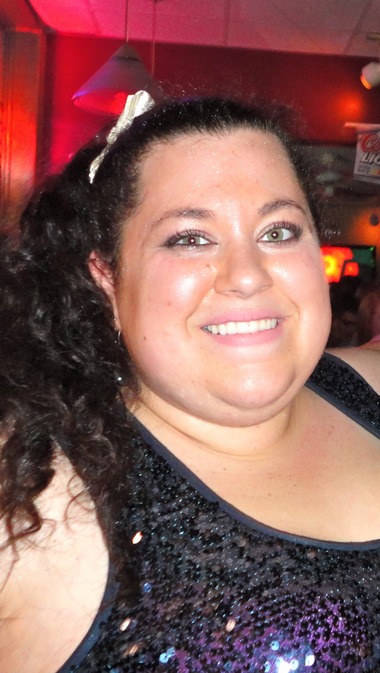In memoriam: Deborah Pearsall, 1990-2012
The following statement on the death of Deborah Pearsall, Class of 2012, has been sent to students from John Smeaton, vice provost of student affairs:
I am deeply saddened regarding the loss of a member of our Lehigh family. Deborah Pearsall, class of 2012, died on Saturday night in the Hershey Medical Center after having been stricken by two pulmonary embolisms last Tuesday.
Debbie was an excellent student and an engaged and engaging student leader. A journalism major, she was a former editor of The Brown and White and two-time winner of the Williams Writing and Performance Award. She was selected for multiple internships, including a highly competitive national Dow Jones News Fund copy editing internship in Florida last summer.
Debbie was a founding member of Zeta Tau Alpha sorority, an orientation leader and a former member of Lehigh’s track team. Beloved by many, she exuded what seemed to be an inexhaustibly positive attitude about life’s opportunities and challenges. She will be missed dearly by her friends, her faculty and all of us fortunate enough to have had the privilege to know her.
Details about funeral arrangements and a campus memorial service will be announced shortly. During this difficult time, our collective thoughts and prayers are with Debbie’s family and those whose lives she touched.
The loss of a vibrant young person elicits many emotions—grief, sadness, anger, confusion. If you or your friends are experiencing difficulty, please know that professional staff members in the dean of students’ office, counseling center and chaplain’s office are available for support and assistance.
I urge you to take a moment to read the following piece written by counseling center staff.
Dealing with Loss
by the University Counseling Service
The Lehigh community has suffered a tragic loss this week with the death of senior Deborah Pearsall. As the sadness and shock waves ripple through the campus, we can anticipate the varied reactions her friends, the faculty and staff who knew her, and others may have to her departure—and bring attention to our need for personal and communal grieving.
The following are some emotions that people typically experience following a loss, though they do not follow a strict sequence, and not every person experiences all of these feelings.
First, there’s often a feeling of shock and profound grief. Sometimes people experience numbness or, more accurately, a lack of feeling. Particularly on a college campus, an unexpected death can rock our sense of security, of being safe from the troubles of the real world. There may also be a sense of denial or disbelief.
As the grief, sadness, shock and denial dissipate, a person may find him or herself feeling anxiety, sadness, guilt, or anger. The anxiety may relate to facing the inevitability of death in general. Sadness may be the emptiness left by the person’s absence, and compassion for his or her friends and family. Guilt may be experienced for outliving the person or for feeling one has somehow not done enough, even though one understands this death did not occur due to someone’s fault. Anger may also be felt toward God or about the unfairness of life.
Furthermore, for some people, the awareness of Deborah’s death may trigger a resurgence of memories and feelings associated with previous losses. This can occur for people who knew Deborah, as well as for those who did not know her. Changes in emotional states, relationships, eating and sleeping habits may also reflect the pain of this loss. One common means of blocking out the pain of grief might include isolation or increased use of alcohol or other drugs.
As humans we look for order in our world and ways to regain this sense of order when things are upset. When someone dies, we ask “Why?” and often don’t get an answer, leaving us with a sense of helplessness.
What do we do? Acknowledging, accepting and sharing our thoughts and feelings about the loss are essential steps to overcoming our grief. Typically, it is often beneficial to do this with another person. When we ignore our emotions they may resurface at another time or may shift into a general feeling of depression. We need to be patient with ourselves and be aware that feelings of loss can affect other areas of our lives, including concentration and motivation or our interest in school.
Loss may affect us for weeks or it may affect us for months; there is no set amount of time within which we should be able to work through our grief. We also need to recognize that individuals grieve in different ways, and that we simply need to support each other as we each strive to make meaning out of this loss.
Survivors often find it helpful to commemorate the deceased by sharing stories and memories with each other, by performing a ritual, or by attending the funeral or memorial service. When we openly grieve a loss we gradually make the shift to feeling more hopeful and healthy again.
The pain of death sometimes focuses our attention on the finite quality of our lives. Ironically, awareness of the fragile nature of life can prompt us to live life more fully. It is hoped that as a community we can grieve as well as grow together.
A personal connection with or referral to the university counseling service, chaplains, dean of students, faculty and other members of the Lehigh community may be helpful over the next few days or weeks as an additional means of support.
Posted on:


